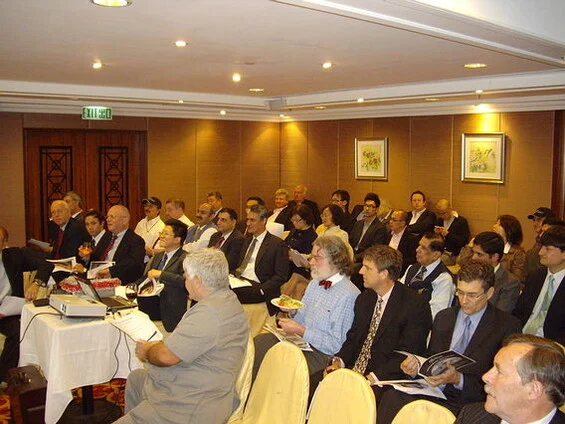May2009
archive > Log > Log2009
Criminalisation of seafarers-
Looking after the crew
A total of 57 members and
guests attended this presentation. The speaker was Harry Hirst,
Partner, Ince & Co. He spent 14 years at sea
with Mobil Shipping Company Ltd serving on ship ranging in size from 3,000 to
300,000 dwt before moving ashore and qualifying as a solicitor. Harry is a
Fellow of the Institute and a past Chairman of the Hong Kong Branch.
Recent high profile casualties involving
detention and imprisonment of masters and crew have drawn attention again to
the seafarer’s exposure to criminal action. Harry’s
presentation looked at some of the problems that this creates and what
measures can be taken to deal with them.
The key point were:
·
Casualties
which involve pollution and/or injury normally result in investigations by
the marine safety authorities and the maritime police. Such investigations
may run in parallel. Therefore it is important to know which interview is
underway and the purpose/consequences of that interview.
·
In all cases,
criminal law requires specialist local advice. Selection of the best lawyer(who may not necessarily be a marine lawyer) who
knows the local criminal laws is essential.
·
Mobilisation and
industry support is essential to get mariners freed in criminal cases. This
must include the support of flag state, government as well as industry
bodies.
·
For the shipowner, allocation of additional manpower and
resources, such as relief masters and additional superintendents at the
scene, are essential to make sure that the case can be handled quickly and
efficiently. The investigating bodies have immense power and have little or
no concern for the ship’s operational requirements when they begin interviews
and take statements. This can take many days, which will exhaust the crew
under investigation and prevent them from carrying out their normal duties.
Support arrangements for the crew are essential including legal, moral,
family and financial.
·
Two types of
interviews apply. There are
‘witness’
statements in which legal representation is not guaranteed. This may be
followed by ‘suspect’ interviews, in which legal representation is normally
guaranteed (interviews under caution). Crew should be aware that in some
jurisdictions, the refusal to co-operate with the witness statements or to
request a lawyer to be present, may be considered as
an admission of guilt.
·
If the merits
of the case are clear and simple to understand then is easier to defend the
crew against criminal liability. However complex cases involving perhaps oil
spillage and damage are more difficult because the general public always feel
that someone must be to blame. It is always easy to find a scapegoat when the
vessel is foreign-owned, crewed and flagged. Owners should not expect fair
treatment or the application of natural justice.
·
Swift action by
the insurers to start the claims process is essential to get public opinion
behind the shipowner.
·
The role of the
prosecutor is to determine if an offence has been committed, decide if the
crew is to be arrested and , if necessary, bring the
case against the crew.
·
The last point
made by Harry was:’ Who is going to pay?’ He
explained that P&I club cover does not include the cost of criminal
charges against seafarers. The club ‘omnibus’ rule may cover it but on a case
by case basis and certainly requiring board approval. He asked owners and
managers to keep in mind that a substantial legal bill perhaps exceeding
millions of USD$ will have to be settled at some stage and this may only be
recoverable at later date, if at all.
There were numerous question from the floor before Branch Chairman, Captain Marso KP Law, brought the presentation to a close.
Captain Law also presented
a donation cheque to Revd
Peter Ellis of the local Mission

Captain Graham Cowling ExC,FNI Seaways May 2009

